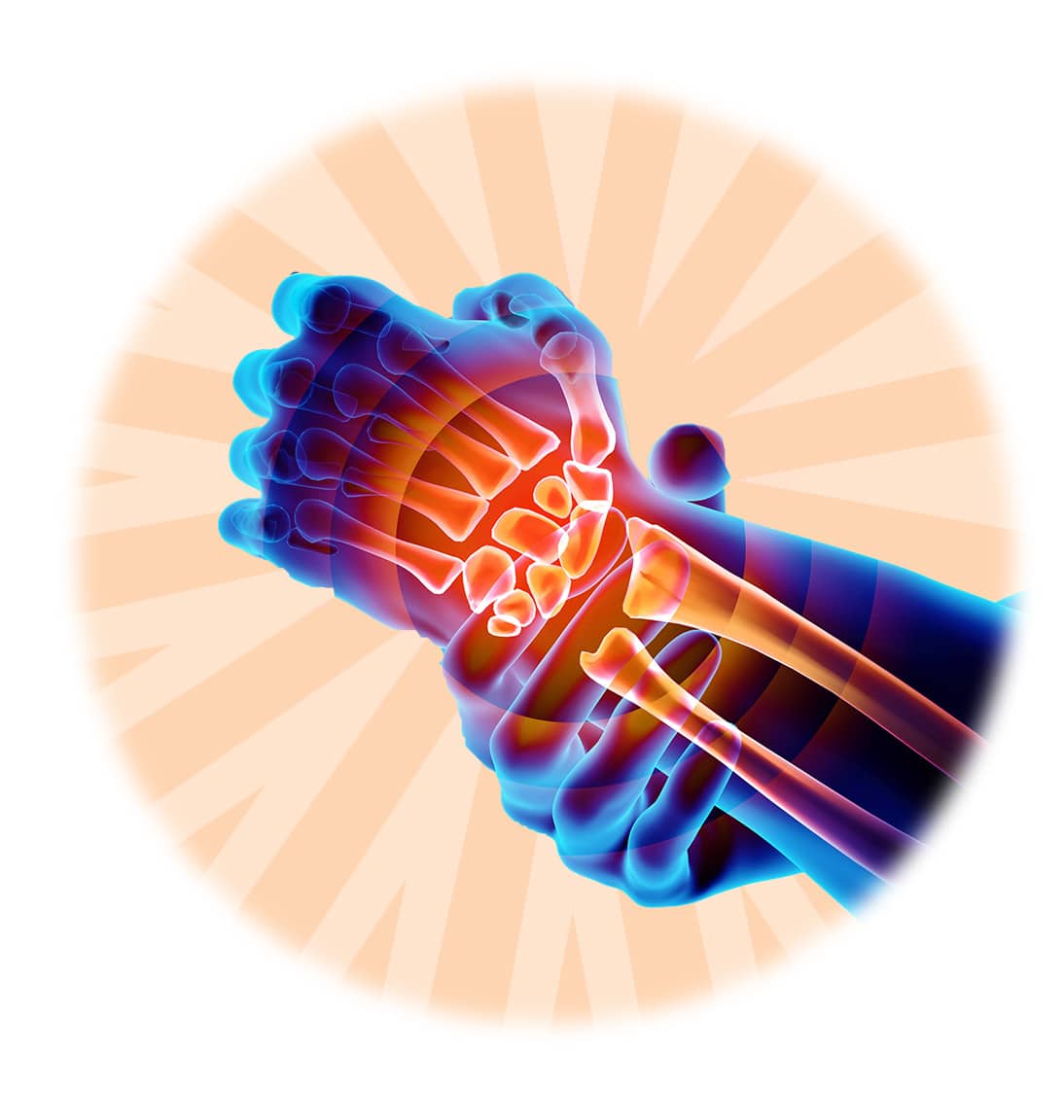Arthritis Pain Management Specialists
Arthritis
Condition Overview
Arthritis is a broad term that refers to inflammation of one or more joints, leading to pain, swelling, stiffness and decreased range of motion. There are over 100 different types of arthritis, with osteoarthritis and rheumatoid arthritis being the most common.
It can result from various causes, including aging, joint wear and tear, autoimmune disorders, infections and metabolic abnormalities. It can affect people of all ages, genders and backgrounds. If left untreated, it often leads to significant disability and decreased quality of life.
If you’re experiencing joint pain or stiffness, don’t ignore it. Getting checked out for arthritis by a specialist early can help you get the care you need to feel better and stay active.
Types of Arthritis
Osteoarthritis
Osteoarthritis is the most common type of arthritis, caused by wear and tear of the joints over time. It leads to the breakdown of cartilage, causing pain, stiffness, and swelling—especially in the knees, hips, hands, and spine. Symptoms often worsen with activity and improve with rest. It tends to develop gradually and is more common with age.
Rheumatoid Arthritis
Rheumatoid arthritis is an autoimmune disease that causes the body’s immune system to mistakenly attack the joints. This leads to inflammation, pain, swelling, and stiffness—often in the hands, wrists, and knees. Unlike osteoarthritis, it can affect multiple joints at once and often feels worse in the morning. Early treatment is important to slow progression and protect joint health.
Ankylosing Spondylitis
Ankylosing Spondylitis is a type of inflammatory arthritis that mainly affects the spine and lower back. It causes stiffness, pain, and reduced flexibility, especially in the morning or after periods of inactivity. Over time, it can lead to fusion of the spinal joints. Symptoms often improve with movement, and early diagnosis is important to help manage pain and maintain mobility.
Symptoms of Arthritis
Arthritis symptoms can vary in intensity and duration depending on the location and severity but commonly include:
- Joint pain
- Decreased range of motion
- Swelling, tenderness, redness or warmth around the affected joint
- Joint deformity or changes in joint shape over time
- Stiffness, especially after periods of rest or inactivity
- Difficulty with everyday tasks such as walking, climbing stairs or gripping objects
- Fatigue or general feeling of malaise

Diagnosis of Arthritis
Arthritis is diagnosed using a combination of methods. First, our team will take a thorough medical history, ask about your symptoms and perform a physical exam to check on joint inflammation, tenderness and range of motion.
Laboratory tests — including blood tests to check for markers of inflammation and specific antibodies associated with certain types of arthritis — may be ordered. Imaging studies such as X-rays, ultrasounds or MRI scans may also be performed to visualize the joints and check for abnormalities or signs of inflammation.
Once a diagnosis has been determined, the next step is to create a customized treatment plan, which is the first step on the path toward relief.
Treatment Options for Arthritis
Arthritis treatment aims to manage symptoms, improve joint function and slow disease progression. Common approaches include medication to reduce inflammation and manage pain, physical therapy to improve joint function and lifestyle modifications such as weight management and regular exercise. In some cases, assistive devices like braces or orthotics may be helpful, while injections may be considered for severe joint damage. The specialists at Nura offer various treatment options for arthritis depending on your unique pain management needs. Available options include:

Real people, real stories
My quality of life went from 10% to 150%.
Nearly 10 years ago, while she was being treated for a herniated disk, Rachel Saum’s life took a dramatic change for the worse.
The doctor who was treating her accidentally injected dye directly into Rachel’s spinal column. The dye destroyed a critical membrane and caused the onset of an extremely rare, incredibly painful condition.
Read More
Find Pain Relief
Schedule an appointment with one of our pain specialists by filling out our appointment request form or giving us a call at 763-537-6000.
